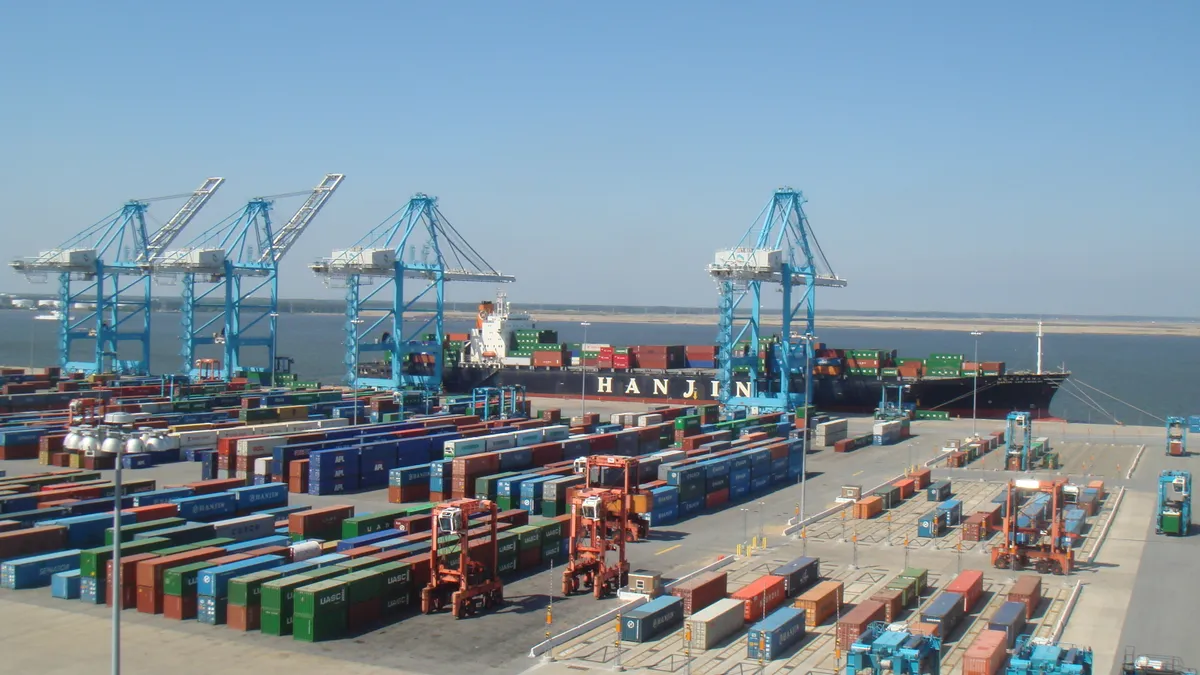Dive Brief:
- The Federal Maritime Commission voted last week to approve the East Coast Port Gateway Terminal Agreement between the Georgia Ports Authority and the Port of Virginia.
- The agreement permits the port authorities from Virginia and Georgia to engage in plans to jointly market services; acquire equipment; discuss best practices for operating systems and equipment; handle cargo and terminal operations most effectively, and improve services to ocean carriers.
- However, the established agreement does not sanction or allow the ports to negotiate, set, or approve terminal rates or related charges. The agreement is effective indefinitely.
Dive Insight:
When the port authorities first announced their agreement, it included the ambition to create a corridor with enough landside infrastructure to ensure the safe passage of greater volume ships, anticipating the prompt arrival of post-Panamax size vessels to the East Coast.
Given their determination to be first, competitive advantage is critical for smaller ports. The fact that Georgia and Virginia are similar in terms of geographic location and services offered, working together through a southeastern strategic partnership is the strongest way to build market share against the rest of the country's ports. Note, too, the best-practice agreement does not include competitor ports in Charleston, SC, or Jacksonville.
While some may argue the alliance may in that sense be anti-competitive, some limitations remain. The FMC's approval made it clear it would not allow the ports to jointly negotiate rates. The parties, however, are authorized to jointly meet and exchange information with stakeholders, so long as any agreement that results from it is not implemented until approved by the regulators.
In other words, the alliance is largely strategic in nature — a move applauded by the FMC. "The ocean transportation services sector is a dynamic and competitive business where the marketplace drives innovation," FMC Acting Chairman Michael Khouri said in his statement. "The port authorities in Virginia and Georgia are responding to a changing industry."
Shippers and 3PLs complain many of the supply chain delays or visibility holes exist at ports. Ports, after all, have been at the center of large economic disruptions such as strikes or congestion, and stakeholders are clamoring for increased efficiency. Meanwhile, industry-wide changes like the alliance shifts or new vessels increase challenges for port authorities. Information sharing agreements are a step to address these challenges.














